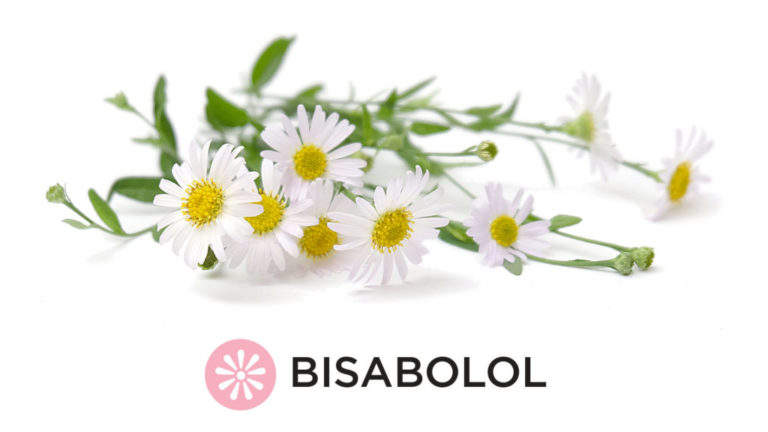 Photo by: Gina Coleman/Weedmaps
Photo by: Gina Coleman/WeedmapsImage lightbox

Formally known as alpha-bisabolol, bisabolol is a cannabis terpene that is also commonly produced by the chamomile flower. Known for its light, sweet, and floral aroma, bisabolol also boasts potential anti-inflammatory, antimicrobial, and analgesic properties.
What is bisabolol?
Bisabolol is a monocyclic sesquiterpene produced by numerous varieties of cannabis, chamomile, and the Brazilian candeia tree. This terpene, also called levomenol, has been used in cosmetics for centuries due to its reported skin-healing properties.
Where does bisabolol come from?
The colorless oil of the bisabolol terpene is typically derived from German chamomile, which is native to Western Europe but also grows in India and the United States, among other places.
What is bisabolol used for?
Bisabolol may be familiar to tea drinkers, but the terpene has diverse uses. For hundreds of years, bisabolol has been integrated into makeup and other beauty products. The terpene's subtle and sweet aroma also makes it a popular perfume essence. Bisabolol is often blended into shampoos and conditioners.
Is bisabolol good for skin?
Cosmetics companies tout products containing bisabolol as tranquilizing, soothing, and calming — qualities that are also associated with herbal tea. Since the terpene is believed to promote the skin's natural healing process, bisabolol skin care products are very common. Moisturizers, cleansers, sunscreen, anti-aging treatments, and eye creams regularly incorporate the terpene. The role of bisabolol in skin care continues to grow as researchers explore its many potential therapeutic properties.
Therapeutic properties of bisabolol
In addition to being touted as a fountain of youth by the cosmetics industry, bisabolol has a number of other potentially therapeutic properties.
Anti-irritant
Just as chamomile tea can soothe a sore throat, bisabolol may have equivalent effects on the skin. However, despite its common use as an anti-irritant in cosmetics, clinical research published in 2006 in the journal Contact Dermatitis demonstrated that the terpene has no effect on skin irritation.
Anti-inflammatory
Safe for topical application to the skin, bisabolol has been shown to reduce skin inflammation in animals, according to a 2014 study published in Current Pharmaceutical Biotechnology. Such studies demonstrate bisabolol's potential to aid in treating inflammatory skin conditions like dermatitis and hives.
Anti-microbial
Paired with tea tree oil, bisabolol may be beneficial in treating bacterial oral conditions like halitosis. These “bad breath” bacteria die in the presence of tea tree oil and bisabolol, according to a 2012 study published in the Archives of Oral Biology.
Analgesic
Numerous scientific studies have investigated bisabolol's potential role as a pain reliever.
Is bisabolol safe?
As a common ingredient in cosmetic and other personal care products, bisabolol is considered generally safe for topical application. The terpene is also non-toxic and safe for ingestion as a natural component in tea. At present, there are no known bisabolol side effects.
Role of bisabolol in cannabis
Cannabis varieties that may produce bisabolol include AC/DC, Harle-Tsu, Headband, OG Shark, Oracle, and Pink Kush. Because all terpenes are easily vaporized by heat, bisabolol may enhance the sensory experience of cannabis as it interacts with cannabinoids.
Bisabolol in cannabis may serve several medicinal purposes. One 2011 medical study published in the Journal of Translational Medicine cited the terpene as a killer of acute leukemia cells. The study was performed on human cancer cells outside the human body, so it has limitations when it comes to determining whether the results would be the same inside the human body.
The findings of this study support the results of an earlier 2010 study published in Molecular Medicine Reports that found bisabolol-rich chamomile inhibited the growth of breast, ovarian, skin, and prostate cancer cells in animal models. These studies present the terpene as an emerging potential therapy for cancer patients, whether through the inhalation of medical cannabis or via topical or sublingual application.
Bottom line
Bisabolol may be known for its gentle fragrance of afternoon tea, but it also shows promise as a useful tool in the fight against cancer and other diseases.
or contributions from Dr. Adie Rae.

